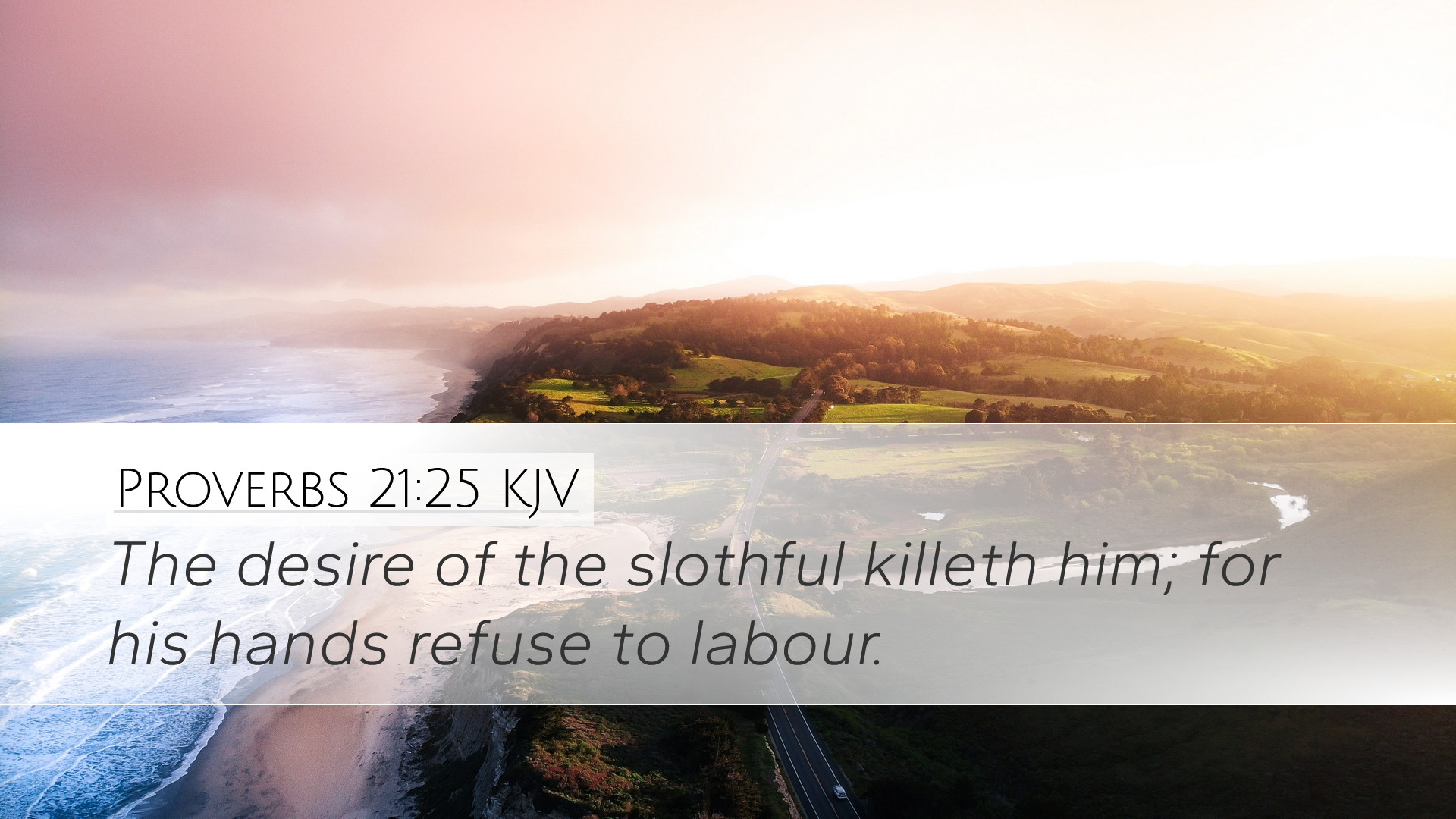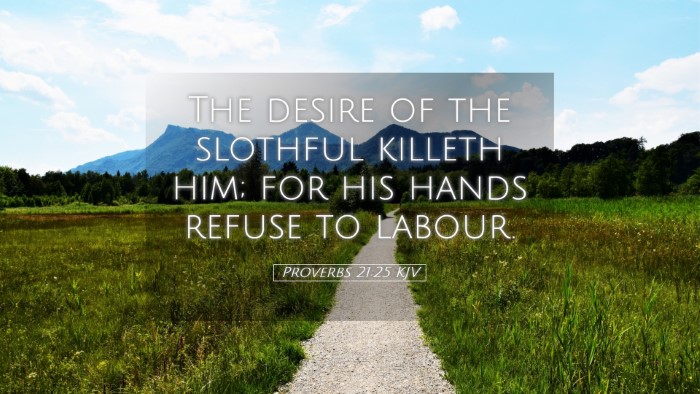Commentary on Proverbs 21:25
Proverbs 21:25 states, "The desire of the slothful killeth him; for his hands refuse to labor." This verse offers profound insights into the nature of idleness and its consequences. Through the examination of various public domain commentaries, we can explore the layers of meaning and practical application that stem from this brief but potent piece of wisdom.
Investigation of Key Themes
- The Nature of Desire
The "desire of the slothful" refers to the unfulfilled longings and aspirations of those who lack diligence. Matthew Henry emphasizes that desires without action lead to despair, highlighting that the slothful continually crave what they do not earn. These desires can be viewed as a manifestation of their apathy, which prevents them from seizing opportunities.
- The Consequence of Sloth
Albert Barnes notes that slothfulness not only results in unfulfilled desires but can also lead to detrimental consequences that ultimately “kill” an individual’s dreams and aspirations. The term "killeth" speaks powerfully to the idea that laziness can destroy potential and aspirations through its inherent stagnation. Those who refuse to engage in labor forfeit their ability to achieve and realize their goals.
- Labor as a Virtue
Adam Clarke interprets the refusal of labor as indicative of character. The verse suggests that labor is not merely a physical act but a critical moral responsibility. The hands symbolize the capacity to act and, therefore, the refusal to labor signifies a deeper spiritual malaise—a neglect of the gifts and responsibilities bestowed upon individuals by God.
- Application for Daily Living
The wisdom found in Proverbs 21:25 extends beyond mere admonition against laziness. Clarke notes that it serves as a call for personal accountability. Each person must evaluate their own desires and ambitions and understand that passivity in labor leads to stagnation in life, both spiritually and materially.
Practical Lessons for Pastors and Leaders
For pastors and church leaders, this verse underscores the importance of diligence in ministry. Understanding that idle desires can hinder the progress of the church and its mission is crucial. Encouraging active service among the congregation can instill a sense of responsibility and urgency that drives spiritual growth.
Encouragement for the Slothful
For those who find themselves struggling with sloth, this passage invites introspection. Understanding that their desires are futile without corresponding action can be a catalyst for change. Viewing work not as a burden but as a divine calling can transform one's perspective on labor into a preparation for receiving God's blessings.
Theological Implications
This verse also points towards broader theological themes regarding God's design for work and productivity. The harmony between divine providence and human responsibility is emphasized; while God provides desires and aspirations, humans are called to fulfill those through diligent effort.
Conclusion
Proverbs 21:25 serves as a concise yet profound reminder of the relationship between desire, effort, and the fulfillment of one’s potential. Public domain commentaries such as those by Matthew Henry, Albert Barnes, and Adam Clarke provide insightful layers that encourage reflection, spiritual growth, and practical application for a life well-lived in alignment with God's purposes.


